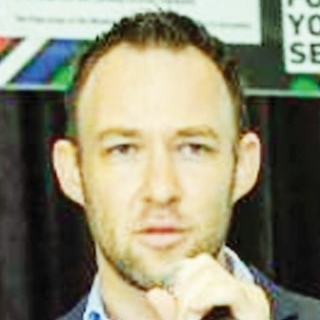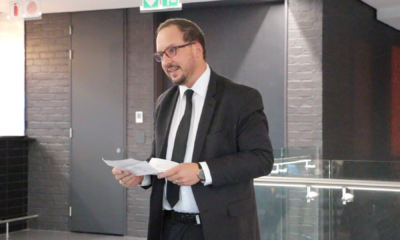
OpEds

SA media’s anti-Israel bias verges on incitement
Published
3 years agoon
Nuance, context, fact checking, and, above all, reflecting both sides of the story when the issues are sharply contested, are the sine qua non of professional journalism.
This is particularly true when it comes to reporting on any conflict, whether involving individuals, communities, or entire countries. Conversely, uncritically reflecting the narrative of one side while minimising – if not disregarding altogether – the version of the other side isn’t journalism. Rather, it’s dishonest propaganda masquerading as such.
Over the past week, the distress of the Jewish community over the renewed violence in the Middle East has been compounded by the local media’s palpable failure to adhere to the most basic standards of journalistic rigour in terms of reporting what has been happening.
With few exceptions, mainstream news outlets have unquestioningly regurgitated the exaggerated, emotive, and frequently inflammatory claims of the hardline anti-Israel lobby while routinely omitting the Israeli perspective.
From print and online media through to radio and TV channels, a distorted picture of brutal, rampaging Israeli oppressors victimising helpless, blameless Palestinian victims has been served up again and again, without introducing even a small measure of balance to temper that false picture.
It’s obvious that the Israeli-Palestinian conflict invariably elicits strongly-held opinions on all sides. Even the salient facts of the situation are sometimes disputed, which is often true of most conflict situations.
Journalists who wish to convey an accurate picture of this fraught subject must be especially rigorous in order to maintain proper standards of truth and objectivity. That entails careful fact checking, reflecting competing narratives, avoiding exaggeration or sensationalism and, in general, making a reasonable effort to present opposing points of view fairly.
This isn’t to say that professional journalism necessarily entails never having an opinion of one’s own. As is all but inevitable, news reporting will often to some extent be slanted towards a particular point of view, especially when it comes to issues where the salient facts are hotly disputed.
This is certainly true about the conflict between Israel and her neighbours. To expect the media to be completely neutral on that question and just report “the facts” may be unrealistic. However, the manner in which the recent violence on the Israeli-Palestinian front has been reported in the local media is something else entirely.
What we are witnessing instead is the journalistic equivalent of unquestioning group think, an unseemly rush on the part of editors, reporters, and opinionistas of every stripe to convey a single, rigid ideological orthodoxy.
This kind of “four legs good, two legs bad” approach is of course standard fair in authoritarian regimes. The question we are confronted with is why it has come to dominate the way in which Israel is being portrayed even in democratic countries, and perhaps most glaringly in South Africa, where antipathy towards Israel is deeply rooted in the ideology of the ruling party.
As has come to typify reporting on “clashes” (an often-used word by reporters) between Israelis and Palestinians, it’s invariably the response of the first rather than the provocation of the second that dominates the headlines.
In reports, we are seeing, as we saw in previous confrontations, how Israeli counter-strikes against terrorist positions in Gaza and their impact on the population have eclipsed any understanding of the unprovoked barrage of lethal rocket fire against Israeli cities. So there is no understanding of what necessitated such retaliation in the first place. Cause and effect have simply been reversed.
The ostensible cause of the current unrest goes back to the controversy about ownership of certain properties in the neighbourhood of Shimon HaTzadik/Sheikh Jarrah. The media’s unreflecting take has been simply to rehash the standard propaganda canard of rapacious Jewish settlers attempting to drive Palestinians out of their homes in “occupied East Jerusalem”.
The legal background to this case is complex, with roots going back nearly 150 years to the era of Ottoman rule and preceding the emergence of the modern-day Zionist movement itself. Yet, in the age of electronic communication, that information was readily available to anyone wishing to portray the situation as accurately as possible.
Suffice to say that little or no effort has been made in that direction. Equally mendacious is the way in which the violent altercations between police and protestors on the Temple Mount have been portrayed as a case of jack-booting Israeli stormtroopers brutalising blameless and peaceful Palestinian worshippers. Given the profound sensitivities surrounding religious freedom, and particularly when relating to this profoundly fraught and contested part of the world, this arguably crosses the line from mere anti-Israel bias to outright incitement, not just against the Jewish state but, inevitably, against Jewish people everywhere. It is, to say the least, irresponsible.
One small silver lining that we can take from this fog of misinformation that the media has been so complicit in propagating is that we are fortunately no longer reliant on mainstream media outlets for our information.
There exist today a plethora of online resources enabling anyone genuinely interested in learning about these issues to fill in the gaps that our inveterately biased media have helped to create.
Our challenge today must be first to educate ourselves, and from there hopefully go on to educate those who in spite of the ceaseless indoctrination that confronts them at every turn are still open to listening, engaging, and making properly informed choices about what to believe.
- Rowan Polovin is the national chairperson of the South African Zionist Federation.










